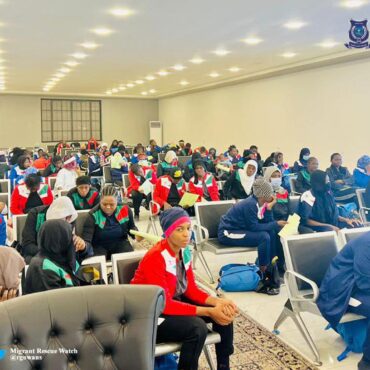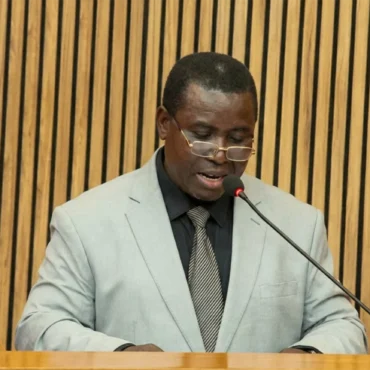The Nigerian Midstream and Downstream Petroleum Regulatory Authority (NMDPRA) has called on Nigerians to remain calm and desist from panic buying of petroleum products, assuring that the country currently has enough supply to meet national demand despite rising consumption during the peak period.
In a statement issued in Abuja and signed by the Director of Public Affairs, George Ene-Ita, the Authority reaffirmed its commitment to maintaining stability in the supply and distribution of petroleum products across the country. It said there is no cause for concern, as current national reserves remain within the acceptable sufficiency threshold.
According to the agency, there is “a robust domestic supply of petroleum products, including Automotive Gas Oil (diesel), Premium Motor Spirit (petrol), and Liquefied Petroleum Gas (LPG),” sourced both from local refineries and importation. These supplies, the statement noted, are being constantly replenished to ensure steady availability at storage depots and filling stations nationwide.
The regulator emphasised that its supply monitoring and market intelligence mechanisms have been strengthened to prevent shortages, disruptions, or arbitrary price increases. It warned marketers against engaging in hoarding or speculative pricing, stressing that such practices are unnecessary given the current supply levels and could attract severe sanctions under existing petroleum laws.
“The Authority hereby cautions against hoarding or non-market reflective escalation of prices of petroleum products,” the statement read in part. “These practices are uncalled for, given the adequacy of the current stock levels and the continuous inflow of products into the domestic market.”
The NMDPRA also clarified recent concerns regarding the 15 percent ad-valorem import duty on imported petrol and diesel, explaining that its implementation has been suspended. The clarification, it said, should allay fears of possible upward pressure on pump prices, as the non-implementation of the import duty would ease cost burdens on marketers and consumers alike.
“The implementation of the 15 percent ad-valorem import duty on imported Premium Motor Spirit and Diesel is no longer in view,” the statement said, noting that this move is intended to help stabilise prices and maintain market confidence.
With the festive season approaching, the NMDPRA said it is working closely with all key stakeholders—including the Nigerian National Petroleum Company Limited (NNPC Ltd.), major and independent marketers, depot owners, and transport operators—to ensure smooth distribution and availability of products across all regions of the country. It assured that logistics and loading operations are ongoing at all depots and coastal facilities to meet the expected surge in demand.
To further strengthen oversight, the authority disclosed that it has deployed monitoring teams nationwide to track product movements, enforce compliance with pricing and distribution regulations, and prevent activities capable of undermining market stability.
“We will continue to closely monitor the supply situation and take appropriate regulatory measures to prevent any disruption in the supply and distribution of petroleum products across the country, especially during this peak demand period,” the statement added.
The NMDPRA commended the cooperation of industry stakeholders in maintaining a stable petroleum products market despite global supply chain challenges. It attributed the current stability to improved collaboration between regulatory agencies, operators, and security institutions ensuring safe and transparent product handling from import terminals to end users.
Beyond assuring sufficient supply, the Authority reiterated its broader mandate of guaranteeing energy security and promoting transparency, efficiency, and accountability within Nigeria’s downstream petroleum sector.
“Energy security is a cornerstone of national development, and the Authority remains committed to ensuring that Nigerians have reliable access to petroleum products at fair and stable prices,” the statement said.
The Authority also acknowledged ongoing efforts by the federal government to expand local refining capacity through the rehabilitation of public refineries and the integration of new private refineries into the domestic supply chain. It said the coming onstream of more local refining operations will further strengthen energy sufficiency, reduce import dependence, and protect the country from the volatility of global oil prices.
In recent months, the agency noted, the domestic fuel market has recorded significant improvements in operational transparency, data reporting, and coordination among regulatory bodies. These developments, it said, have contributed to reducing artificial scarcity and improving the overall resilience of the supply chain.
Meanwhile, the NMDPRA reaffirmed its collaboration with the Nigerian Customs Service, the Standards Organisation of Nigeria, and other relevant institutions to streamline import documentation and ensure that all products entering the country meet required quality and safety standards.
As part of its consumer protection initiative, the Authority also urged members of the public to report any cases of product hoarding, price gouging, or sharp practices to its zonal offices or through official complaint channels. It assured that such reports will be promptly investigated and addressed in line with regulatory procedures.
While assuring Nigerians of uninterrupted supply, the agency expressed optimism that the ongoing reforms in the petroleum industry will ultimately lead to a more competitive and sustainable downstream market. It restated that, under its supervision, the midstream and downstream sectors will continue to operate in a manner that protects consumer interest, ensures fair pricing, and promotes national energy stability.
The NMDPRA concluded by encouraging Nigerians to purchase petroleum products responsibly and avoid panic buying, emphasizing that doing so will contribute to maintaining order in the supply chain.
“The Authority appreciates the understanding and cooperation of all Nigerians and reiterates its commitment to guaranteeing energy security and ensuring the consistent availability of petroleum products across the country,” the statement concluded.






Post comments (0)